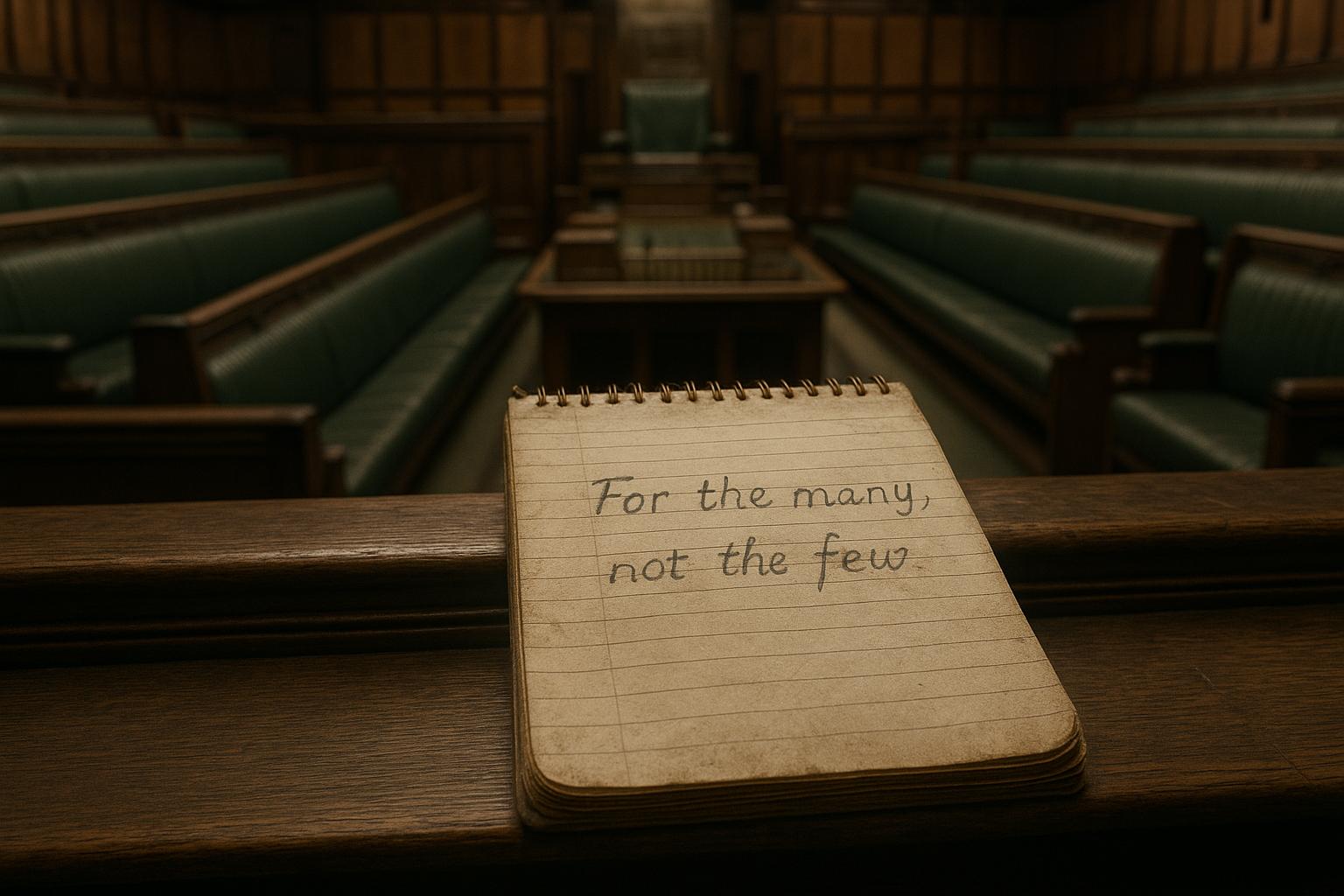Prime Minister Sir Keir Starmer is reportedly facing rising discontent within the ranks of the Labour Party, with some MPs allegedly plotting to oust him. This internal tension emerges despite the Prime Minister's recent efforts to reconcile with rebellious backbenchers, reflecting broader frustrations over the party’s polling performance and concerns that the Government may renege on a key manifesto pledge not to raise income tax.
A significant development in party unity came with the restoration of the whip to four Labour MPs, Neil Duncan-Jordan, Chris Hinchliff, Brian Leishman, and Rachael Maskell, who had their party membership suspended in July after rebelling against the Government's welfare reform plans. These MPs, who include three newly elected members from last year's intake, had been among more than 100 Labour parliamentarians opposing welfare reforms feared to adversely affect people claiming disability benefits. Following discussions with Chief Whip Jonathan Reynolds, they have now been reintegrated into the Parliamentary Labour Party after months of sitting as independents. Ms Maskell reaffirmed her commitment to Labour values upon her return, thanking supporters for their kindness during the suspension period.
However, the restoration of the whip to these four MPs is part of a broader, more complex process of reasserting party discipline. Other rebellions persist within Labour, including the ongoing suspension of three MPs, John McDonnell, Apsana Begum, and Zarah Sultana, who backed an SNP-led amendment to abolish the two-child benefit cap. This group remains outside the parliamentary party, illustrating that Starmer’s leadership continues to grapple with balancing internal dissent against party unity.
Starmer himself has maintained a firm stance against recurrent breaches of party discipline. Earlier in the year, the whip was stripped from several MPs, including those now reinstated, as part of a clear signal that repeated defiance would not be tolerated. Party sources noted that these suspensions were not triggered by isolated incidents but stemmed from persistent rebellion over welfare reforms.
The Prime Minister’s position is further complicated by other political challenges. Culture Secretary Lisa Nandy recently apologised after a probe found she inadvertently breached governance codes by failing to declare donations tied to her appointment picks. Additionally, calls have intensified from Conservative MPs for Starmer to face scrutiny from the Government’s ethics adviser over donations received from David Kogan.
In parallel, Deputy Prime Minister and Justice Secretary David Lammy has come under criticism for his handling of a serious prison error, the mistaken release of an Algerian sex offender from HMP Wandsworth, after he chose not to address the issue publicly during Prime Minister’s Questions despite being briefed in advance.
Meanwhile, speculation about the upcoming Budget has stirred fresh unease within Labour ranks. Deputy Leader Lucy Powell has publicly warned against breaking the party’s manifesto pledge by raising income tax, national insurance, or VAT. This admonition comes amid reports that Chancellor Rachel Reeves is considering a cap on tax-free pension contributions, which, while technically not an income tax rise, might be perceived as a fiscal tightening inconsistent with the party’s commitments. Powell cautioned that breaking such promises could severely damage public trust in the party and politics more broadly.
All these issues paint a picture of a leader under pressure to maintain control and cohesion in a party marked by ideological divides and policy disagreements, even as it seeks to present a united front ahead of future electoral battles.
📌 Reference Map:
- [1] (Irish News) - Paragraphs 1, 2, 5, 6, 7, 8, 9
- [2] (ITV News) - Paragraphs 2, 5, 6, 7
- [3] (Sky News) - Paragraphs 3, 4
- [4] (Evening Standard) - Paragraph 4
- [5] (Reuters) - Paragraph 4
- [6] (Evening Standard) - Paragraph 3
- [7] (Upday) - Paragraph 2
Source: Noah Wire Services
